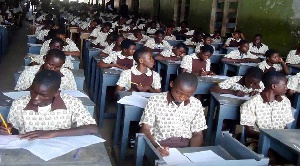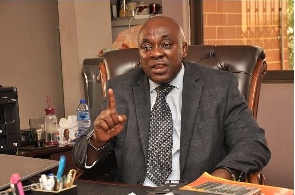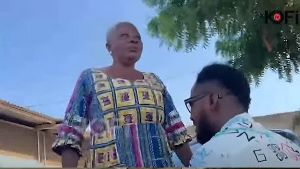The new government’s Free Senior High School policy, which is set to begin in September, is aimed at ensuring that no student is left out at the senior secondary education level.
This is in line with the government’s vision of ensuring that every child who starts schooling from kindergarten ends at, at least, the Senior High School level.
Even though the policy is yet to begin, it has already sparked debate as to whether the Basic Education Certificate Examination (BECE), at the Junior High School level, which serves as an entry requirement for admission into Senior High Schools (SHS),should be abolished.
The debate arises out of the belief by some stakeholders that the BECE prevents a lot of students, who fail it, from proceeding to the SHS level.
Some have, therefore, called for the BECE to be abolished if the free SHS programme is to succeed in increasing enrolment and increasing access to secondary education.
One of such proponents is the presidential candidate of the Progressive People’s Party, Dr Papa Kwasi Nduom, who said the BECE makes thousands of students who are unable to pass it liabilities to society as they become uneducated and unskilled for the labour market.
The Executive Director of the Institute for Education Studies, Prince Armah, after President Nana Akufo-Addo announced government’s intention to introduce the policy next academic year, argued that a lot more students are not getting access to SHS because they fail to pass the BECE.
“If government wants to improve SHS accessibility then it should remove the need to write BECE as a requirement to progress to SHS and make basic education a seamless transition from JHS to SHS,” he said.
The free SHS policy, when successful, will see about 1.6 million eligible students between the ages of 15-17 years across the country benefiting.
However, statistics from the West Africa Examination Council (WAEC) suggest that a significant number of students who sit for the BECE every year fail to get admission to second schools.
Data show that only 176,128 candidates, representing 46.93 per cent of the 375,280 candidates who sat the 2011 BECE met the criteria for selection and placement into Senior High Schools and technical institutes.
The remaining 40 percent were expected to go into either informal vocational or technical training or learn a trade, while others were left simply idle. In 2014, only about 60 percent of students who wrote the BECE made it into Senior High Schools (SHS). For instance, in the Northern Region, where standard of education is low, only 22percent made it to SHS, while in the Upper East Region a paltry 11percent progressed.
In a report titled: “Free SHS Education: Should the Debate only be about Feasibility?”Dr Yaw Ohemeng, an educationist, argues that Free SHS needs not necessarily translate into abolition of the BECE or the absorption of boarding fees.
Rather, he recommended, free SHS should mean the free availability of a school place for all who are qualified and willing to take up such a place.
He said the introduction of free post-JHS education should therefore be accompanied by reforms and additional investment to improve the quality of basic school education whilst also expanding access to tertiary institutions.
“With these, eventually the BECE could be replaced by national assessments (conducted by WAEC but without issuing certificates) to be able to measure quality improvements at the basic level.
Such assessments could also be used to measure equity in opportunities by monitoring performance in all regions of the country (both rural and urban) and amongst girls and boys and to stream children into the different types of post-JHS institutions.”
- Mahama is a threat to Free SHS – Miracles Aboagye
- Education Ministry honours Minister on 60th birthday
- Free SHS: Every sensible person will opt for a review – Prof. Kwabena Frimpong-Boateng
- I hate Free SHS more than I hate Satan - Blakk Rasta
- 3 Free SHS graduates emerge best WASSCE students in West Africa
- Read all related articles













